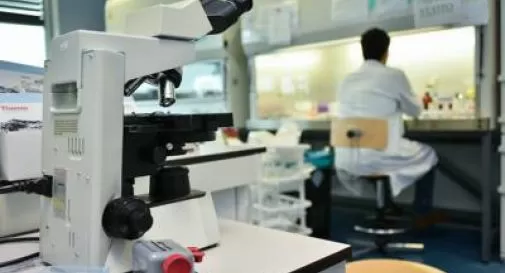Rome, Jan. 9 (Adnkronos Health) – Women with metastatic breast cancer should undergo liquid biopsy, a minimally invasive test that can detect specific DNA mutations in a tumor and help determine the effectiveness of innovative treatments. The priority now is to identify laboratories within the regional cancer network that can perform this test.
Breast cancer is the most common cancer in women worldwide, and metastatic breast cancer is the most advanced and difficult form of the disease. It occurs when cancer cells from the breast spread to other parts of the body, such as the bones, lungs, or liver.
For women with metastatic breast cancer, the treatment options are limited and often ineffective. That’s why the recent recommendation from the regional cancer network to prioritize liquid biopsy testing for these patients is a major step forward in improving their care.
Liquid biopsy involves analyzing a small sample of blood or other bodily fluid to identify specific DNA mutations in the tumor. This information can then be used to determine the most effective treatment options for the patient. Compared to traditional tissue biopsy, which requires an invasive surgical procedure, liquid biopsy is a much less invasive and more accessible option.
The benefit of liquid biopsy for women with metastatic breast cancer is twofold. First, it allows for a more targeted approach to treatment, based on the specific mutations present in the tumor. This can improve the effectiveness of the treatment and potentially lead to better outcomes for the patient. Second, it allows for real-time monitoring of the tumor’s response to treatment, which can help doctors make adjustments if necessary.
The recommendation to prioritize liquid biopsy testing for women with metastatic breast cancer is a significant step towards personalized and effective treatment. It recognizes the importance of identifying specific mutations in the tumor and tailoring treatment accordingly. This is especially crucial for metastatic breast cancer, where time is of the essence and every decision counts.
In addition to its benefits for individual patients, liquid biopsy also has the potential to advance research and understanding of breast cancer. By analyzing multiple samples over time, researchers can gain a deeper understanding of how tumors evolve and develop resistance to treatments. This can inform the development of new and more effective therapies for all breast cancer patients.
However, for this potential to be fully realized, it is essential to have access to experienced laboratories that can perform the liquid biopsy test accurately and efficiently. This is where the regional cancer network has a crucial role to play. By identifying and designating specific laboratories for liquid biopsy testing, they are ensuring that women with metastatic breast cancer have access to this important tool for personalized treatment.
The prioritization of liquid biopsy testing for women with metastatic breast cancer is a significant step forward in the fight against this devastating disease. It shows a commitment to providing the best possible care for these patients and acknowledges the importance of personalized treatment. With this recommendation, we can hope for better outcomes and improved quality of life for women with metastatic breast cancer.

